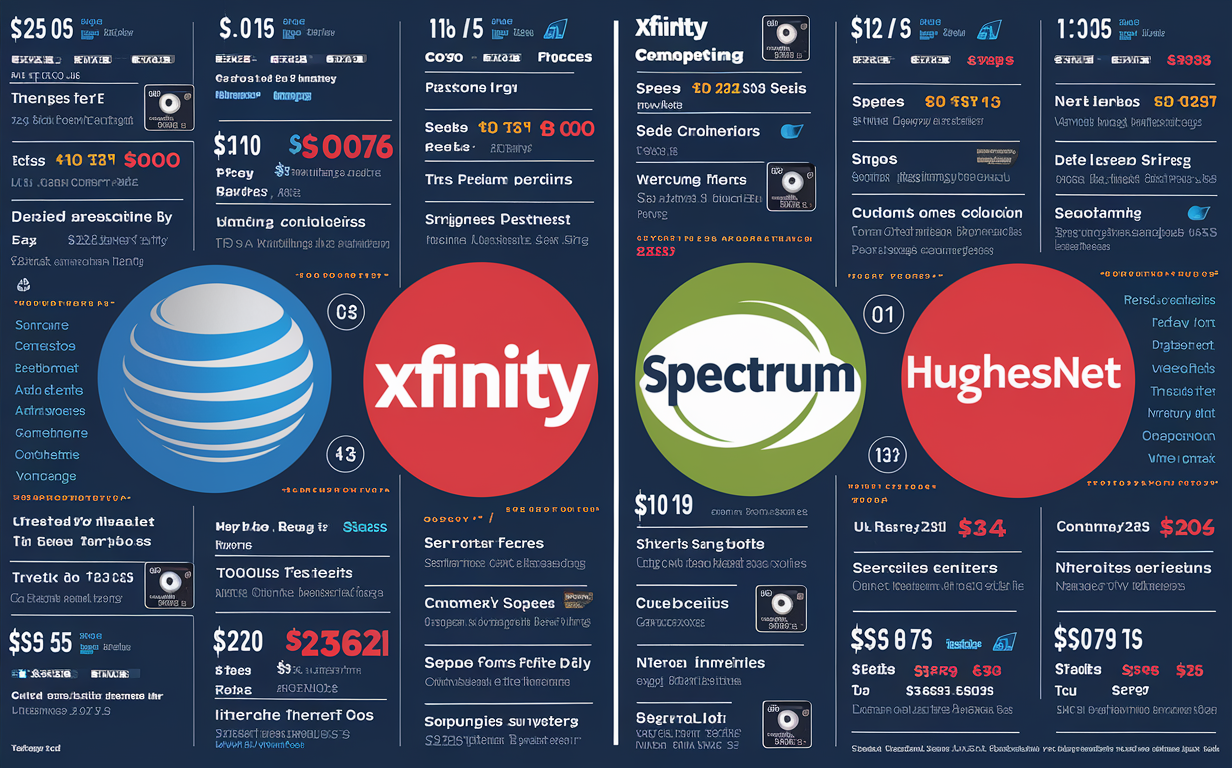What is the best alternative to Verizon FIOS?

Verizon Fios is extremely popular but what is the best option if it is not available?
Among the target locations where Verizon Fios does business, it is one of the most well-known fiber internet providers. Way quicker than cable internet, fiber delivers download rates of up to 940 Mbps and upload speeds of up to 880 Mbps. If Verizon Fios is not accessible in your location, you might be looking for another internet service provider since Fios is not widely available in many places.
Many companies nowadays offer equivalent cable and fiber internet speeds. But what you should do depends on your pocket, what speeds you need, and where you live. You may choose from the following some of the top Verizon Fios substitutes available on the market.
Xfinity by Comcast
Consumers outside of the Verizon service area inside the Comcast zone could choose Xfinity first. Xfinity's cable internet runs DOCSIS 3.1 technology, which enables a 1.2 Gbps download speed even though it doesn't provide a fiber connection.
The upload speeds are lower than Fios with a maximum of 35 Mbps, and can significantly fluctuate depending on the location. However, their top plan is equally as fast as the downloads provided by Verizon’s Fios package. Pricing for Xfinity internet plans that offer up to 800 Mbps download speeds begins at $80 per month with bundling.
AT&T Fiber
Verizon Fios has a true fiber internet competitor in At&T Fiber. Their fiber network offers equal speeds for downloading and uploading data at 1000 Mbps for $60-80 per month with the possibility of discounts.
Currently, the fiber availability of AT&T is rapidly increasing as they penetrate new markets. If you are seeking an option with the same download and upload speeds, it is necessary to know if their high-speed fiber internet is available in your area.
Cox High-Speed Internet
Cox Communications provides cable internet services and it has rolled out a 1 Gbps download to rival Verizon Fios where both firms are present such as Northern Virginia and San Diego. Their fastest plan is the 35 Mbps upload and services start at an average cost of $100 per month.
However, Cox Gigablast 1 Gig internet speeds are mostly available only in specific markets up to date. Other tiers of download speeds that are more readily accessible do not exceed 500 Mbps or below. Nevertheless, Cox remains one of the fastest widely accessible internet service providers if you live in their coverage area.
Spectrum Internet
Cable internet service by Charter Spectrum provides internet connection up to 400 Mbps in vast regions of the country. Coupled with its presence in more than 41 states, Spectrum offers a fairly convenient Fios substitute with adequate bandwidth for most families.
Spectrum offers internet services at $50 per month for 200 Mbps and goes up to $110 for 400 Mbps internet service. Spectrum’s disadvantages include its relatively low upload speeds which are limited to between 20-35 Mbps, which is however sufficient for home use.
TMobile 5G Home Internet
One of the relatively newer ones is the T-Mobile 5G home internet service. It uses cellular 5G frequencies, not cable or fiber, as its main resource for providing internet service. Real-world download speeds measure from 33 Mbps to 182 Mbps depending on testing done by external sources while the maximum speeds can reach up to 500 Mbps in controlled environments.
Upload speeds come down to about half the download, as much as 35 Mbps. It is also slower than Verizon Fios; however, it offers unlimited data and costs $50 per month, making it a reasonable choice. It could suffice for basic needs if their 5G signal strikes where you live.
Ziply Fiber
Ziply Fiber is a relatively young fiber internet company that has been growing fast in the Northwest region. Their fiber internet offering equals Verizon Fios’ upload and download speeds with the capability of achieving 1 Gbps. Pricing is also relatively reasonable, with the cost per month ranging from $60 to $80.
Zippy began with frontier fiber assets and has remained engaged in constructing additional fiber infrastructure. Today, it connects more than 500000 locations in Idaho, Oregon, Montana, and Washington through its high-speed fiber.
Other Regional Fiber ISPs
Furthermore, a myriad of regional or local fiber internet providers is bringing choice and ultra-high-speed plans to challenge Verizon Fios. These are companies such as Allo Communications, MetroNet, and Google Fiber.
As recently as a few years ago, fiber speeds of 1 Gbps were unheard of. But CFI and other community fiber networks and providers continue to turn on new areas with $70/mo multi-gig plans on par with Fios where offered.
But what if there is no fiber or cable broadband available in a particular area?
When cable or fiber is unavailable in rural areas, the ability to receive fast and reliable Internet remains a problem. If you have no or extremely slow DSL, satellite internet plans are available from vendors such as Viasat or HughesNet but it tops out at 25 Mbps.
Broadening subsidies and grants should help finance the rollout of fiber and wireless Internet in rural areas, for instance. So even if you’re in an unserved area, never lose hope. New rural Verizon Fios competitors which are cheaper and faster should be available in the following years due to private and public rural broadband investment promises.
Ready to experience blazing-fast internet? Call us today at +1 844-967-4555 and discover the power of Verizon Fios Home Internet! Don’t miss out—get connected now!